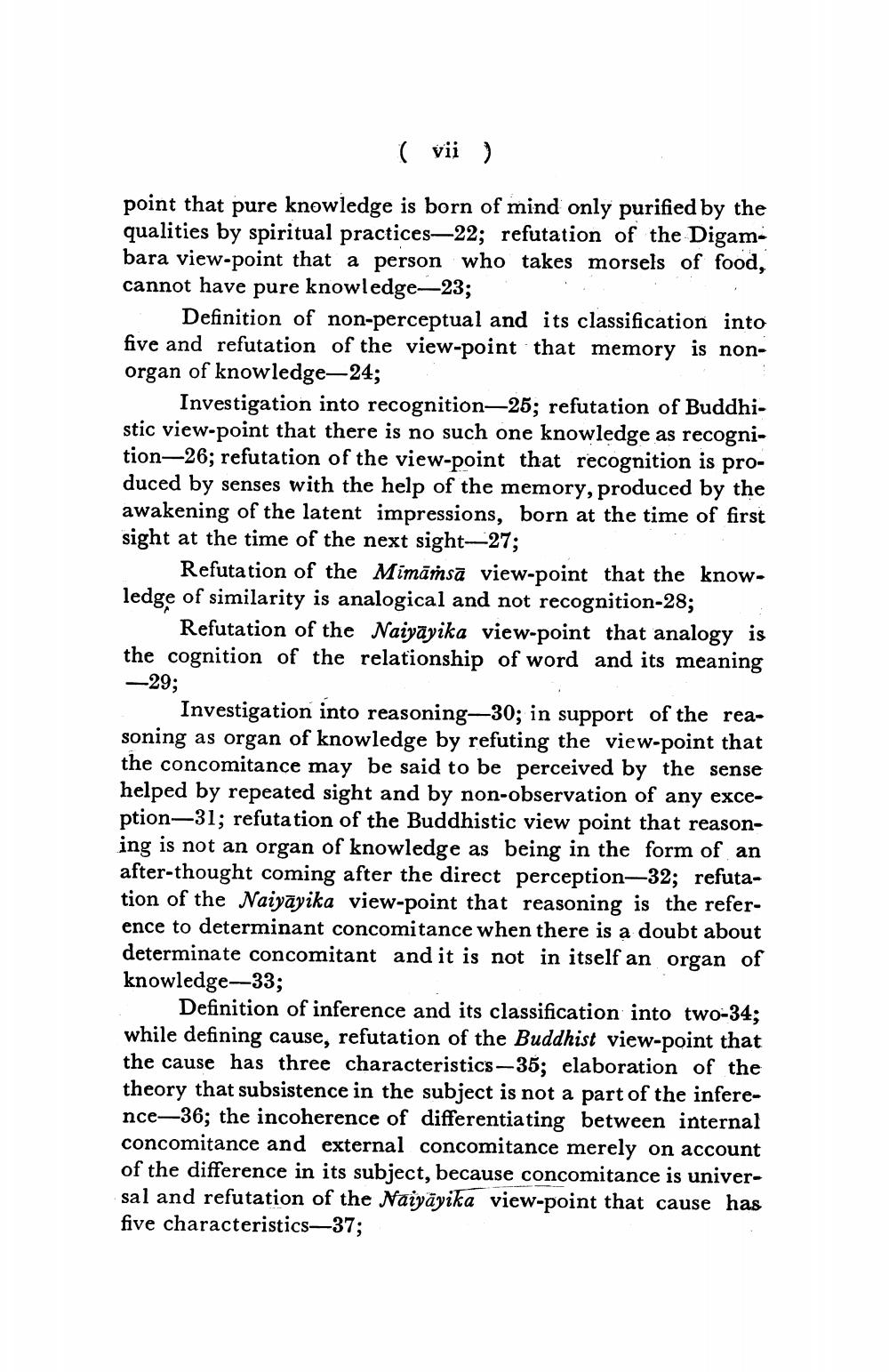Book Title: Jaina Tarka Bhasha Author(s): Dayanand Bhargava Publisher: Motilal Barasidas Pvt Ltd View full book textPage 9
________________ ( vii ) point that pure knowledge is born of mind only purified by the qualities by spiritual practices—22; refutation of the Digambara view-point that a person who takes morsels of food, cannot have pure knowledge—23; Definition of non-perceptual and its classification into five and refutation of the view-point that memory is nonorgan of knowledge—24; Investigation into recognition–25; refutation of Buddhistic view-point that there is no such one knowledge as recognition—26; refutation of the view-point that recognition is produced by senses with the help of the memory, produced by the awakening of the latent impressions, born at the time of first sight at the time of the next sight-27; Refutation of the Mimāṁsā view-point that the knowledge of similarity is analogical and not recognition-28; Refutation of the Naiyāyika view-point that analogy is the cognition of the relationship of word and its meaning -29; Investigation into reasoning—30; in support of the reasoning as organ of knowledge by refuting the view-point that the concomitance may be said to be perceived by the sense helped by repeated sight and by non-observation of any exception—31; refutation of the Buddhistic view point that reasoning is not an organ of knowledge as being in the form of an after-thought coming after the direct perception-32; refutation of the Naiyāyika view-point that reasoning is the reference to determinant concomitance when there is a doubt about determinate concomitant and it is not in itself an organ of knowledge-33; Definition of inference and its classification into two-34; while defining cause, refutation of the Buddhist view-point that the cause has three characteristics-35; elaboration of the theory that subsistence in the subject is not a part of the inference–36; the incoherence of differentiating between internal concomitance and external concomitance merely on account of the difference in its subject, because concomitance is universal and refutation of the Naiyāyika view-point that cause has five characteristics-37;Page Navigation
1 ... 7 8 9 10 11 12 13 14 15 16 17 18 19 20 21 22 23 24 25 26 27 28 29 30 31 32 33 34 35 36 37 38 39 40 41 42 43 44 45 46 47 48 49 50 51 52 53 54 55 56 57 58 59 60 61 62 63 64 65 66 67 68 69 70 71 72 73 74 75 76 77 78 79 80 81 82 83 84 85 86 87 88 89 90 91 92 ... 198
